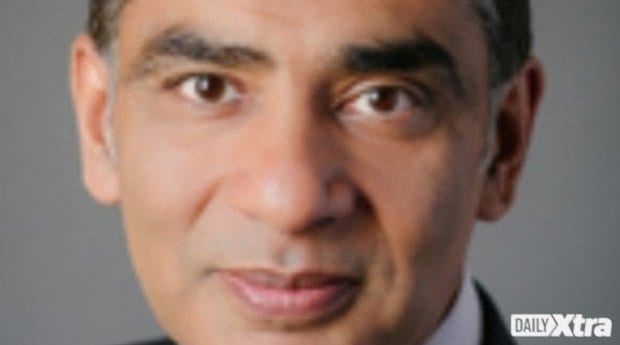After weeks of publicly wavering on its initial approval of Trinity Western University’s (TWU) proposed law school, the BC government revoked its approval Dec 11.
Minister of Advanced Education Amrik Virk cites the “uncertainty” created by the Law Society of BC’s decision to revoke its own approval for the school on Oct 31.
“The current uncertainty over the status of the regulatory body approval means prospective graduates may not be able to be called to the bar, or practise law, in British Columbia,” Virk said in a statement. “This is a significant change to the context in which I made my original decision.”
“Based on the current situation, I have decided to revoke my approval of the proposed law school at Trinity Western University,” he said. “This means the university cannot enroll any students in its proposed program.”
The government was scheduled to appear in court Dec 1 to begin hearings in a case brought by Trevor Loke, a prospective law student who is suing the Ministry of Advanced Education for its approval of a school that he argues would be discriminatory in its admissions policy. Virk sought an open-ended adjournment in the case, but the court refused, instead giving him until Jan 5 to decide whether to reverse his approval of the law school.
Virk acknowledged to Xtra Dec 1 that he requested the adjournment because he was “reconsidering” his decision on TWU.
Loke’s lawyer, Clayton Ruby, tells Xtra the minister’s decision to withdraw his approval “makes sense.”
“He made a mistake. Why should he be pilloried for it? He wants out,” Ruby says.
However, Ruby is not convinced that the BC law society’s recent decision to rescind its approval is the real reason for Virk’s reversal. It’s just an excuse to get out of an unconstitutional situation, Ruby suggests. Either way, he says, “it’s a great day for justice.”
Virk approved the proposed Christian law school on Dec 18, 2013, two days after the Federation of Law Societies of Canada approved it. In November 2014, after a contentious year of law societies across Canada grappling with the question of whether to accredit the school’s future graduates, Virk sent a letter to TWU president Bob Kuhn, announcing that his approval was actually conditional on TWU enrolling students within three years of his consent — a deadline he now says may not be met because of lengthy court processes surrounding the provincial law societies’ decisions.
TWU is suing the law societies of both Ontario and Nova Scotia for rejecting its school; the latter hearing begins Dec 16. Virk says once those legal issues are resolved, TWU can reapply for a law school.
At the centre of the controversy that has played out in law societies across Canada is TWU’s community covenant. For admission to TWU, students must agree to live by a covenant agreeing to uphold Christian biblical teachings, including no premarital or gay sex. Failure to uphold these commitments, according to the student handbook, could result in discipline, dismissal or a refusal to readmit a student to the university.
TWU president Bob Kuhn says the school is disappointed with Virk’s decision.
“It is difficult to conceive of a justifiable basis for the minister to have revoked his approval of the school of law program,” Kuhn said in a Dec 11 statement. “As a private Christian University, Trinity Western has demonstrated its place in Canada’s academic community, delivering some of Canada’s highest ranked professional programs. We believe in diversity and the rights of all Canadians to their beliefs and values.”
Kuhn says Virk had been under pressure to revoke his consent since Oct 31, when the BC law society reversed its earlier decision to recognize TWU law graduates.
The law society rescinded its approval after an outcry from its members, 74 percent of whom voted against accreditation in a referendum this fall.
Loke tells Xtra he’s thankful that Virk has listened to the lawyers of British Columbia and to the law societies who opposed his original decision.
“It should be the right of all Canadians to have equal access to law school based on educational merit, and today’s decision by the minister shifts the government’s position to the position we have taken,” Loke says. “We feel vindicated and thankful that the fight of so many people across Canada has been heard.”
“I now hope that Trinity Western University can look within itself to remove their covenant and welcome all students to learn within its halls,” Loke adds.
Kuhn says TWU remains committed to opening its law school. “There are such important rights and freedoms at stake that we may have no choice but to seek protection of them in court,” he says in his statement.
If TWU is going to pursue legal action in BC, Ruby says, it should sue both the minister and the law society and have the suits run together. If TWU wins, Virk may have to reverse his decision again, he says. “That’s a big leap. That’s four or five years down the road.”
Ruby says any decision in the Loke case is now moot, and they will now move to seek costs when the case returns to court Jan 5.
Gay NDP MLA Spencer Chandra Herbert says that the ministry’s approval was shameful in the first place and that the reversal is a victory for human rights. “The Liberals should never have approved a law school that would treat gay people as second-class citizens,” he tells Xtra.

 Why you can trust Xtra
Why you can trust Xtra


